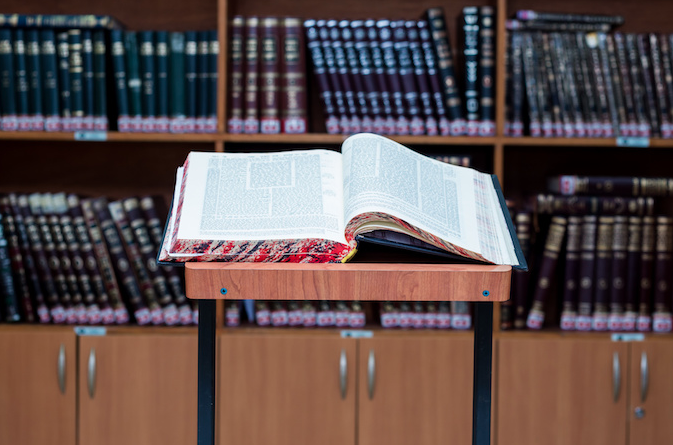What’s New in the Talmud Department?
This year, the Talmud Department- led by its chair, Rabbi Schiowitz- is joining forces with other departments in the school to create new projects that will better connect students skills in both Judaic and secular studies. Rabbi Schiowitz has been facilitating this collaboration as part of his new administrative role as “Director of Judaic Studies and Religious Life.” For example, a Judaic studies research paper has been arranged for the eleventh grade this year, due towards the end of the first semester. Students will be able to expand on topics from Judaic Studies learned in past years or write about new topics they are interested in. Rabbi Schiowitz explained, “The structure of this paper was modeled after the history research paper in order for students to utilize those acquired skills. In addition, part of the goal of this new research paper is to invite students to publish them together with projects and pieces from Hebrew class.” In addition to the eleventh-grade research paper, tenth graders are currently writing divrei Torah for each parsha in order to revive Likrat Shabbat, a weekly publication consisting of divrei Torah and topics about the Parshat Hashavua, and to reinvision the Illuminations publication series. Initiatives from last year, such as classes for parents and alumni and ethics talks for juniors and seniors, will be continued and expanded this year.
The Talmud department has been offering their Lunch and Learn program for many years now, a weekly opportunity for students to learn about topics in Talmud that are not part of the regular curriculum. The program takes place during one lunch period per rotation, and Regular Talmud students are incentivized to attend by not having to take the final. Some Accelerated and Honors teachers offer other types of incentives like extra points on a test, but not an exemption from the final. Rabbi Schiowitz explained that this program is incentivized specifically for Regular Talmud because “Honors and Accelerated teachers consider the final to be a critical part of their Talmud program because it integrates all the topics learned throughout the year. In addition, the Honors and Accelerated classes already have nine Talmud classes a rotation so this initiative is more worthwhile for regular Talmud which has five classes per rotation.” Rabbi Schiowitz explained that the number of Talmud classes per rotation, which is greater than any other course, depends on track. Thus, he said, “Talmud has two significant challenges, one is deciphering the Aramaic words and the ambiguous syntax. The second challenge is the comprehension and analysis of the abstract concepts. Because of this, more time is needed in order to make significant progress. At the same time, we recognize that not all students want to make the same investment of time into the study of Talmud. Therefore the regular track offers an alternative. Additionally, Talmud is optional in the senior year.” As a side note, the idea that Talmud is “optional” for seniors is misleading: while students can opt out of higher-level Talmud courses, they still have to take some form of Jewish theology course, ranging from an “Origins of Humanity” class with Rabbi Schimmel to “Tales of the Sages” with Rabbi Bodner. The increasing focus on requirements of the Talmud curriculum emphasize the school’s commitment to Judaic studies and Talmud study as a whole.



